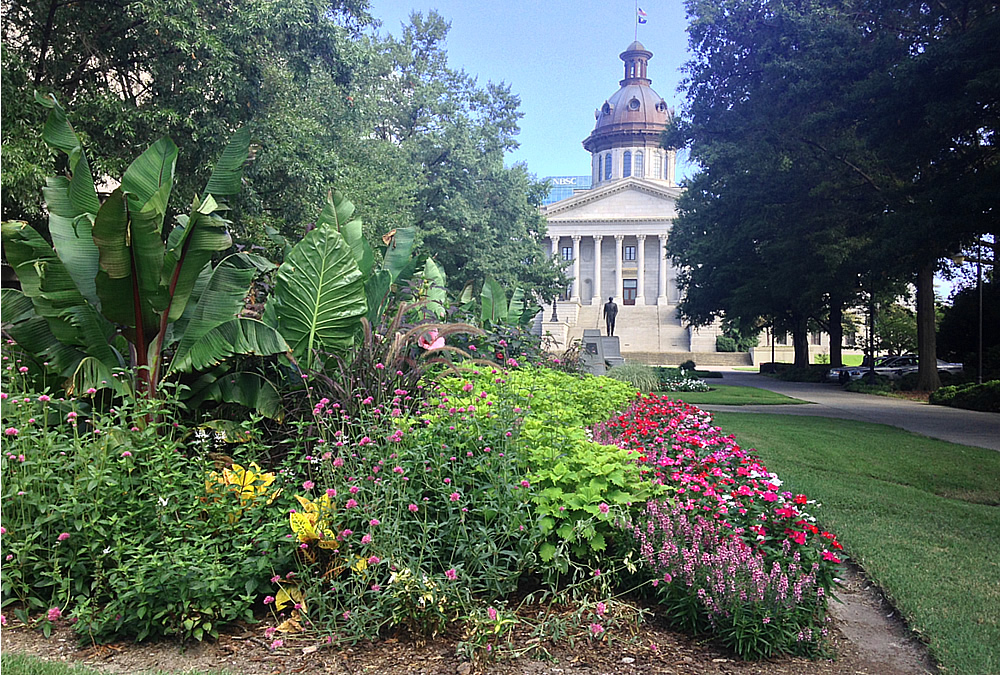
By Lindsay Street, Statehouse correspondent | The second year of the biennial session wrapped up Thursday with some big items left undone, including funding state government and lawmakers’ response to the $9 billion nuclear fiasco that sucked oxygen from the Statehouse for months.
But that’s not to say nothing got done. Since session reconvened in January, more than 60 pieces of legislation passed — and that’s not including the flurry of bills approved this week.

“Tensions were high but, all in all, it was a good session. The Senate ended singing ‘Kumbaya’ and we were all friends when we walked out the door, but the House wasn’t necessarily happy with us,” S.C. Sen. Katrina Shealy said. She said the number of unfinished House bills was the reason for the discontent.
The Lexington Republican said she was pleased with a last-minute Senate passage of a voter referendum to change how South Carolina selects its chief of public education and several child-focused bills. But, she noted, there are some big items left on lawmakers’ agendas.
“We’re not finished,” she said.
Here’s a look at the good, bad and the ugly from the 2018 legislative session.
Nuclear issues still on the table
![]() The House and Senate were unable to agree for much of the session on how to respond to the failed V.C. Summer nuclear reactor project in Fairfield County. The public-private utility partnership saddled S.C. Electric and Gas customers with an 18 percent surcharge on bills and cast uncertainty on the fate of Santee Cooper.
The House and Senate were unable to agree for much of the session on how to respond to the failed V.C. Summer nuclear reactor project in Fairfield County. The public-private utility partnership saddled S.C. Electric and Gas customers with an 18 percent surcharge on bills and cast uncertainty on the fate of Santee Cooper.
Both bodies passed legislation, but were unable to come up with a compromise on items such as how much of the surcharge should be repealed. The House refused to settle for anything less than repealing the full amount — which Gov. Henry McMaster said was the only option he would not veto.
On the last day of session, the Senate voted to repeal the Base Load Review Act, which allowed SCE&G to preemptively raise rates for the nuclear project, and strengthen the state utility watchdog. Those items will need to be taken up by the House at a later date, which can be done when lawmakers return for two days at the end of this month and for another two days at the end of June.
Government operations
![]() During the session, the General Assembly passed three bills restructured how government operates:
During the session, the General Assembly passed three bills restructured how government operates:
- 4977 puts the governor and lieutenant governor on the same ticket;
- 805 created the Children’s Advocacy Department, an umbrella agency designed to act as a watchdog over all child services offered through state government; and,
- 3146 would put a question to voters in November that could change the state superintendent of education from an elected position to a gubernatorial appointment. The governor still needs to sign this bill into law.
Environment
![]() Offshore drilling, a prohibition on local governments banning plastic bags, expiration of the Conservation Bank — those were just some of the bills this year that touched on environmental matters.
Offshore drilling, a prohibition on local governments banning plastic bags, expiration of the Conservation Bank — those were just some of the bills this year that touched on environmental matters.
Conservation Voters of South Carolina Executive Director John Tynan said the defeat of the ban on plastic bag bans by local governments and permanent reauthorization of the Conservation Bank were big wins.
“Conservation champions successfully fought back against attacks on home rule and efforts to strip communities of the ability to find local solutions to local plastic problems,” Tynan said of the proposed ban on bag bans, H. 3529.
“We saw collaboration and compromise work on numerous fronts to maintain or improve good conservation policies — maintaining the critical ‘no seaward movement’ policy for the coastal baseline related to shoreline management, improving the Solid Waste Management Act with the support of a strong coalition of stakeholders, and passing anti-litter and solar habitat legislation.”
A bill to encourage native habitats to be installed around solar fields passed both bodies but has amendments pending in the House. The House will need to concur with the Senate or hash it out in conference before sending the bill to the governor’s desk. Any bill in conference prior to end of session maybe hashed out in the two two-day sessions this month and next.
The General Assembly did not take any action on offshore drilling this session, but that isn’t bad news as offshore drilling opponent Frank Knapp sees it.
“The good news is that the organizations opposed to drilling and testing not only successfully staved off the proponents but used the process to educate legislators about how drilling and seismic testing threatened our pristine coastline and local economy,” Knapp said.
Education
![]() Here are two of the main education-focused bills passed this session, both of which are awaiting McMaster’s signature:
Here are two of the main education-focused bills passed this session, both of which are awaiting McMaster’s signature:
- Codification of the Exceptional Needs SC program ( 4077), which gives tuition breaks to parents and caregivers who have enrolled a student at a private school to meet the student’s special-needs education; and,
- Mandatory dyslexia screening ( 4434).
Health care
![]() Opioids and opioid addiction has dominated national news, and state lawmakers responded with several bills of their own aimed at the crisis.
Opioids and opioid addiction has dominated national news, and state lawmakers responded with several bills of their own aimed at the crisis.
One new law authorizes pharmacists to dispense opioid antidotes to certain community organizations (H. 4600); another, more recently passed bill, requires opioid addiction education in high school (H. 3820). The latter still needs a signature from McMaster.
Health care professionals are lauding a bill that expands the scope of advanced practice registered nurses in the state, and allows them more geographic freedom from an overseeing physician. The approved bill also is on McMaster’s desk.
“It was a long, arduous debate over several years, and this meaningful change will improve access to care while moving to allow advanced practice registered nurses to practice at the top of their licenses,” S.C. Hospital Association’s Schipp Ames told Statehouse Report.
Amy Young of Ridgeville, a nurse practitioner, heralded the General Assembly’s bill.
“(We) have finally won the right to join our colleagues across the United States to have expanded practice privileges in accordance with our education and training,” she said. “By reducing barriers for Nurse practitioners to practice, South Carolina will strengthen the health care workforce and improve patient outcomes for our underserved and vulnerable populations.”
Women’s health was another big issue during the session from several bills aimed at limiting abortions in the state to a bill that will ease workplace demands on a pregnant woman. The session ended on a high-note for South Carolina Women’s Rights and Empowerment Network, which successfully fought lawmakers’ attempts at restricting abortions in the state. In the waning days of session, the abortion debates were finally silenced after a Democratic filibuster in the Senate. The Pregnancy Accommodations Act passed both bodies and awaits signature from the governor. WREN called it an “epic victory” in a mass email to subscribers.
Business
![]() Chickens, liquor and nuisance lawsuits took up valuable debate time on the Statehouse floor this session.
Chickens, liquor and nuisance lawsuits took up valuable debate time on the Statehouse floor this session.
- The so-called chicken bill ( 3929) was passed into law. The legislation only allows neighboring residents to contest a chicken farm being erected.
- In that same vein, the General Assembly passed an automatic-stay law ( 105), which requires judges to offer a ruling on a challenged project in less than 90 days, and a new law that says existing manufacturers cannot be sued by new neighbors for being a nuisance (H. 3653).
Tynan said those laws were about “giving polluters an easier path to cause environmental harm with little consideration to health and quality of life of nearby communities.” The S.C. Chamber of Commerce was asked for comment on this story but did not provide one.
Another business item was keeping the number of stores per liquor license to three in the state (H. 4729), which passed into law.
Still on the table
![]() The General Assembly will return May 23 and 24, and June 27 and 28 to hash out unsettled issues from the session. Read the “sine die” resolution.
The General Assembly will return May 23 and 24, and June 27 and 28 to hash out unsettled issues from the session. Read the “sine die” resolution.
The largest unsettled issue is the $8.2 billion spending bill, which includes amendments that would give teachers raises and remove solar net-metering caps. The budget is in conference as a select group of House and Senate members hash out amendment details. The conference committee will meet next week and is expected to have a resolution by May 23, sources say.
The chambers are also expected to take up a solution for the nuclear fiasco in the May and June mini-session. With legislation passed and yet hung up on amendments, it is unclear how lawmakers will respond, if they are able to come to an agreement.
Another item that identified to be settled during this time is the issue of conforming the state tax code to the federal code. The move would raise taxes, so the House leadership put forth a bill that would reinstate the personal exemption. H. 5341 passed the House and is now in Senate committee.
- Have a comment? Send to: feedback@statehousereport.com.


